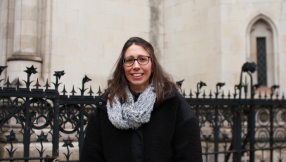
In the Holy Bible, Jesus Christ taught us how to attain eternal life. In John 6:71, for example, Jesus Christ said: "Truly, truly, I say to you, unless you eat the flesh of the Son of Man and drink his blood, you have no life in you. Whoever feeds on my flesh and drinks my blood has eternal life, and I will raise him up on the last day."
A Russian scientist, however, believes that he can have eternal life through the power of science, more specifically through the power of 3.5-million-year-old bacteria.
Anatoli Brouchkov, head of the Geocryology Department at Moscow State University, agreed to be a human guinea pig for his experiments on making human beings immortals, the New York Post said, based on an article that appeared in the Siberian Times.
Brouchkov injected himself with Bacillus F, the bacteria found alive in the permafrost of Sakha Republic in Siberia after existing for millions of years, with hopes that it will be his elixir of youth.
The scientist recently claimed that the injection had a positive effect on him. He said he decided to be the subject of his own experiments after he conducted successful tests of the Bacillus F injection on mice and fruit flies.
"I started to work longer, I've never had a flu for the last two years. After successful experiments on mice and fruit flies, I thought it would be interesting to try the inactivated bacterial culture," Brouchkov told The Siberian Times.
He said the bacteria seemed to be safe for intake. "Besides, the permafrost is thawing, and I guess these bacteria get into the environment, into the water, so the local population, the Yakut people, in fact, for a long time are getting these cells with water, and even seem to live longer than some other nations. So there was no danger for me," the scientist explained.
However, Brouchkov admitted that he has yet to determine the full potential and possible adverse side effects of the bacteria on him.
"It still needs the experiments. We have to work out how these bacteria prevent ageing. I think that is the way this science should develop. What is keeping that mechanism alive? And how can we use it for our own benefit?" he asked.













